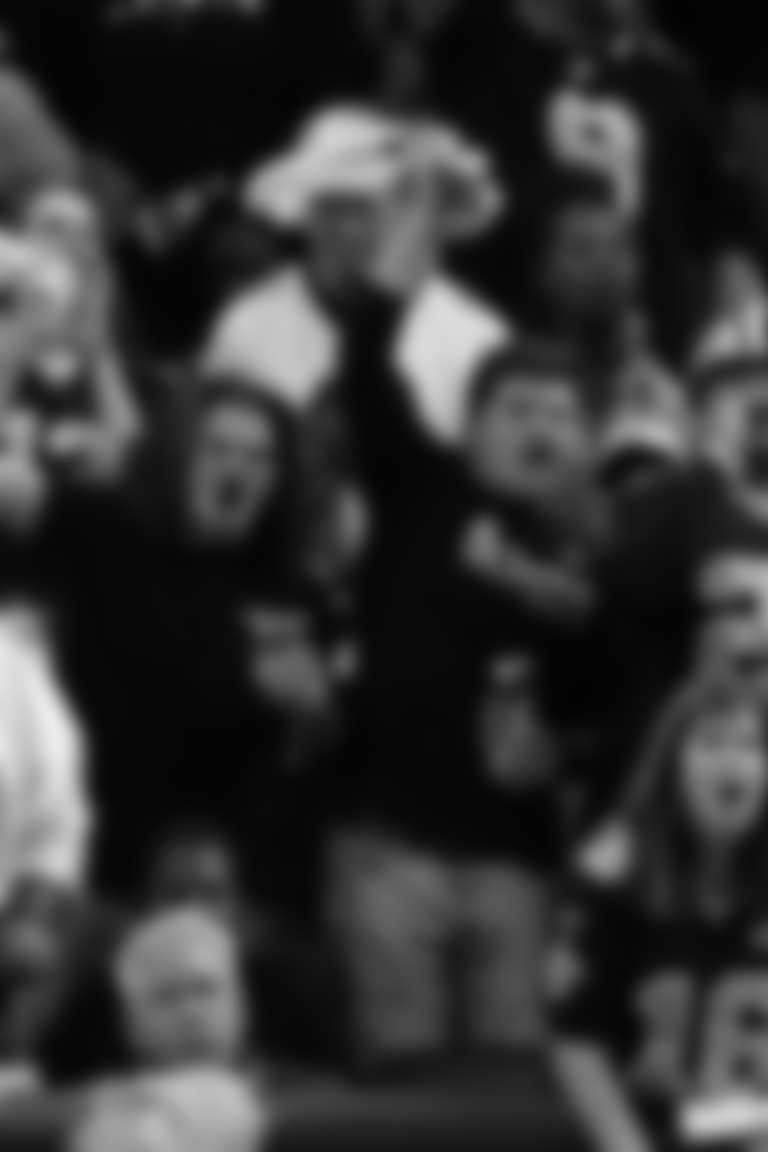<span>
Question and Answers with New Orleans Saints Senior Vice President/Chief Financial Officer Dennis Lauscha
NewOrleansSaints.com: The casual observer is going to be a bit overwhelmed with all the different moving parts of this deal. Could you take each component of the agreement between the State of Louisiana and the New Orleans Saints and explain it briefly?
New Orleans Saints Senior Vice President/Chief Financial Officer Dennis Lauscha: "There are many moving facets to this deal and the first one is the Superdome lease, which is obviously the most important one of them all.
With that in mind, you need to go back a couple of years, and you will see that we have always discussed the need to resolve two issues if you are going to solve the financial viability of the Saints being in New Orleans for the long term: the two main issues are the market viability and the second is the stadium issue.
"The reason we have the current agreement we now have is that this agreement tried to solve both of those issues, an agreement that provided money for any deficiencies in market and to make up for any deficiencies in the building. Well since Hurricane Katrina happened, the Superdome has been considerably upgraded. At the end of this new agreement (announced today), there are going to be close to $400 million dollars in upgrades completed to the Superdome since 2005. That is a very significant number and really brings the Superdome up to level that makes it competitive with any building in the NFL from revenue standpoint. Thus what really has been done is this has given us the ability position ourselves in the middle of the average in the NFL in revenues. That's what the old inducement package was there to do, get us to average in the league. So, by fixing the stadium issue, it puts us close to average in the NFL in the economic models.
"Now, from a market perspective I think that the market viability issue has really been stepped up in the last three years and the fans and our Patron Saints business partners have responded. The question of whether or not this was still a viable market has certainly been answered the last three years with the attendance and the support the fans have shown. That support and passion has to be there for the next 15 or 20 years, which we expect that it will.
"The second component of the agreement has to do with some guarantees built in, and I can assure you that the guarantees are nowhere near where they were in the prior deal. But they are, in essence, safety nets in case we have a cash market failure or anything catastrophic. Under the new agreement, they are there to make sure the team can remain financially viable. Under the new agreement we are protected in the case of a market failure and in improving the Superdome to allow us to generate the revenue we need to operate the football team."
NewOrleansSaints.com: So at the end of the day and in layman's terms, the Saints and the State of Louisiana have reached an accord on a 15-year extension?
New Orleans Saints Senior Vice President/Chief Financial Officer Dennis Lauscha: "That is correct, with a five-year option."
NewOrleansSaints.com: One of the initial points that you touched on involved improvements to the Superdome. What sorts of upgrades will there be and what sort of inconveniences will the fans that attend the games experience throughout the season?
New Orleans Saints Senior Vice President/Chief Financial Officer Dennis Lauscha: "Hopefully there will not be any inconveniences during the football season. The entire operation and construction schedule will be completely built around the Saints' seasons. Certainly we don't want any inconveniences for our fans and with that in mind, we have carefully planned out the improvements to make sure that they will not experience any inconveniences. There are a lot of events at the Superdome, but it is the goal not to have any loss of revenue due to any upgrades to the Superdome through construction. So the focus is to make sure that the construction is done away from the football season.
"Now, as far as what people can expect to see with the upgrades, it's very exciting. There are some really neat things that are going to happen. One of the things that has hampered the Superdome was one of the things that really made it attractive early on, and that was the building as a multi-purpose facility. When it was built in the mid 1970's, it maximized the available technology that was there at the time and they were able to have multiple events come through the building, ranging from football to truck-and-tractor pulls, to professional baseball and basketball, plus concerts and a lot more. Everyone used the building but it didn't serve any one tenant exceptionally well. In that regard it is no different than many of the multi-purpose stadiums that you still see in any sport. However because of its design and with the inherent flexibility and with the magnitude of the building's size, it allows for doing a lot of different things.
"Because of the enormous amount of square footage, as well as the advancements in technological designs, we are now able to rebuild the plaza level in such a way without losing the advantages the multi-purpose component that the Superdome offers. It will allow us to get the fans even closer to the action on the field without losing anything, and I would say that the sightlines for the fans will be just as good, if not better, than any venue in the National Football League. That's going to be outstanding as the fans will be closer to the field, and in turn, closer to the players."
The other thing that we are going to do with regard to the plaza level is that with all the room behind the seats, we are going to completely redesign the plaza level on the ground level as well as build club amenities for those patrons.
"Thus for some patrons, they are going to be able to walk straight from their cars through a dedicated entrance straight through to a special club room on the current club levels and walk straight through an entrance and directly up to their seats. There is no place in the NFL that I know of that fans are able to do this. You will be able to park you car, walk to your seat and in between have a clubroom with all of the amenities available to you. I think that is very remarkable.
"Also something that everyone will notice, and it is a pet peeve of mine, is how narrow some of the corridors are. It makes moving around the plaza level, particularly right before the game, very difficult because of the limited space. Everyone that enters the Superdome enters on the plaza level, particularly at gates A and C, so you have an enormous amount of people pouring through those gates into areas, that in my opinion, are simply too small. With the new construction, we are going to take the new concourses and expand them dramatically. To put things in perspective, if you are currently sitting on the 40-yard line on the plaza level, you know that you have to walk across a bridge to get to your section. Those bridges will be eliminated and that entire area will be a concourse area. That will increase the room greatly and give us the opportunity to add more restrooms, concession stands and hospitality upgrades. Without a doubt our fans will notice a major upgrade in fan amenities.
"Additionally, and we're hoping that this is available for the 2009 season, are two vertical transportations systems like escalators that will go from the ground level up to the club levels. The transportation for fans around the Superdome is going to be greatly upgraded by the start of the 2011 season.
Another major change will be the relocation of the press box. When the Superdome was originally constructed the press box was built so that it would be behind home plate during a baseball game. Well, being that baseball is not played there and there are no plans to play baseball there, the press box will move up to the terrace level and in its place will be 16 new premium suites.
"Those are the major projects and what I would describe as 'priority one projects.' There are some other projects in the works, such as expanded video boards, which will be primarily around gate C. Some ramp expansions around gates A and C in order to serve the fans walking up those areas and are able to get into the Superdome more quickly, an expansion of our retail store and the Saints Hall of Fame, some elevators added throughout the building and some renovations to the Dome Café and the Coors Cold Zone, with both being renovated and improvements to our Patrons Saints Lounge.
"We would also like to make some improvements to the terrace concourses in the end zones. When all is said and done it will cost $125 million to make those upgrades."
NewOrleansSaints.com: The Benson family has expressed an interest purchasing the currently dormant Dominion Tower. What is the vision for what that will become and can this serve as a catalyst for the Central Business District?"
New Orleans Saints Senior Vice President/Chief Financial Officer Dennis Lauscha: "The renovation of the Superdome is the beginning of the whole Poydras Street corridor improvement. The (New Orleans) Arena, as we have seen, is state-of-the-art, the Superdome will be state-of-the-art after the all the improvements are made. So you take into consideration those two venues, knowing that they host as many, if not more, than any other side-by-side venues in the United States, and the beauty of the development of the area around the Superdome is that we will be able to better enhance the fan experience around the Superdome on the days of the games with upgraded facilities right around the Superdome.
"The Dominion Tower really wouldn't fall under the category of something that would enhance the fan experience or game day activities. Right now it is a blighted building that we want to put back into commerce. Nobody wants a blighted building right next door to the Superdome. If that building is refurbished and enhanced and vibrant, it certainly will encourage other property owners and business owners around that building to enhance their property and take advantage of the increased population that will be drawn to the area.
"Lastly is the New Orleans Centre mall, again a building that has pretty much sat empty since 2005. The vision for that mall is to get it redeveloped into an entertainment district and plaza fairly quickly. That would start with a reactivation of a food court and some retail stores. But really the vision there is to get it built in line with something like a Patriot Place (Foxborough, Mass.) or the Staples Center (Los Angeles) and some other areas that we have studied in Europe and Australia. It will be an area where you can have festivals and concerts and it will be covered. Think a little bit about Fremont Street in Las Vegas, with the video boards and utilizing cutting age technology and making it an area that people want to gather around throughout the year for a variety of events."
NewOrleansSaints.com: The Saints and the Louisiana Stadium and Exposition District (LSED) are going to partner to redevelop the New Orleans Centre mall. Will this be a traditional shopping space, more sports-centric or a combination of both?
New Orleans Saints Senior Vice President/Chief Financial Officer Dennis Lauscha: "From the research we have done on mall space, I don't see the mall going back to what it was like before the hurricane. The research we have done shows us that urban malls are really no longer attractive to many people and for a variety of reasons. We see this as more of an entertainment corridor, with a food court, restaurants and some retail space that can also serve the Poydras Street corridor and the people working and living in that area. There is a condominium development complex in the works in that area and the hope is that the Hyatt hotel that is currently dormant will be coming back online fairly quickly. So when you start adding up the people that will regularly be in the area, very quickly you realize what a viable operation this will be."
NewOrleansSaints.com: One of the hot topic subjects in this region generally focuses on the fixed inducement payments that the state and the Saints agreed to many years ago under a different state leadership. What will happen to the fixed inducements in this new accord after the 2010 season?
New Orleans Saints Senior Vice President/Chief Financial Officer Dennis Lauscha: "After the 2010 season, they will no longer be in existence as we know them. The inducements themselves were put in place to fill in for market and building deficiencies and what we are seeing now is that there are different ways now in order to fill in those areas. Through the investments made in the Superdome and the increases we are experiencing on our marketing side of our operation, we hope will continue and grow. So the inducements as we know them now will go away.
"The bigger focus, and one that I have harped on during the negotiations and one that I know the state feels that same way about if you listen to principles on the other side of the table, is that in my over 10 years of negotiations with the state, is that in very few of the past agreements have the state's interests and the Saints' interest been always exactly aligned. It's been more of a tenant-renter relationship and at times some resentment has been felt from various parties. However, with the new agreement and how it was designed, this is a true partnership and we can try to achieve the same goals. Whether it is through success in the buildings next door to the Superdome or in the Superdome itself, we are tied together and have incentives to reduce costs and make this work. We are all in this together and we believe this puts us in line for future success."
NewOrleansSaints.com: Playing in one of the smallest markets in the NFL and without the state subsidies may lead some to believe that the Saints will not be able to compete financially with the larger market teams in terms of competition. Is this a worry moving forward?
New Orleans Saints Senior Vice President/Chief Financial Officer Dennis Lauscha: "We absolutely worry about them and plan for them. That's the risk we take with the new deal. The whole model has shifted, where a portion of the risk has shifted back to the entire team, and we feel it should be that way. There are some safety nets in the agreement and some benchmarks that have to be hit and there are very minor guarantees in the stadium and building lease. There are some safety nets that have to be met in accordance with the National Football League, as well, but the hope and the goal is to never need a safety net. But yes, without a doubt the risk has shifted away from the state and to the Saints."
NewOrleansSaints.com: Stadiums are being constructed in markets such as northern New Jersey and Dallas for a billion dollars or more. Granted an $85 million upgrade is notable, but is it realistic to think that these upgrades will bring the Superdome up to a level adequate to handle events such as Super Bowls, NCAA Final Fours, BCS National Championship games and political conventions?
New Orleans Saints Senior Vice President/Chief Financial Officer Dennis Lauscha: "Absolutely. I am a firm advocate that the Superdome will be on a level playing field and able to host the events you mentioned. It goes back to what I mentioned earlier. You can't look at this $85 million that will be spent in the next two years. You have to go back and look at what has happened to the Superdome since Hurricane Katrina. Essentially the building will be brand new after these new upgrades are complete. There will be completely new infrastructure in place, there will be new amenities in place that no other building in the league has. In no way am I suggesting that the Superdome will have all of the things that those newer stadiums will offer, but I would certainly say it will be on par with any other stadium in the NFL. We specifically asked those questions to the architects that have worked on the newest stadiums around the league and that were one of our more major concerns. We asked if the improvements made would put us in line with the most modern buildings around the league and if the $85 million dollars was enough to get the project done with those thoughts in mind, and we were given assurances that it would. The biggest and most important aspect that we have come to realize through this project is just how big the building really is and it affords us the options that are existence in that we are maximizing, whether it be in terms of seating, club level amenities, suites and upgrades throughout the building, that make it a better facility for our fans and our team."
NewOrleansSaints.com: Prior to three years ago, there was a larger population base yet the team struggled to regularly sellout home games. Each game the past three seasons has been a sell-out and the season ticket waiting list continues to grow and grow and demand for tickets have never been greater. Does the timing of this announcement reflect a willingness on the Saints' part to assume greater responsibility for producing incremental stadium revenues?
New Orleans Saints Senior Vice President/Chief Financial Officer Dennis Lauscha: "Without a doubt. We have seen the fans respond positively to the investments we have made, and continue to make, in the team. The fans have responded to the investment the state has put into the Superdome and the investment the National Football League has put into the building and so at the end of the day it has to be considered, and was considered, in this agreement. I think the fans have shown up, and they continue to give us great support. I would like to think as a New Orleanian that they take a lot of pride in their team, but I also think they take pride in the fact that we have put together a very competitive and exciting team that features the best offense in the league over not just one season but over three years, arguably one of the best quarterbacks that is playing the game today in Drew Brees, and an ownership that is continually willing to invest in the club and is unwavering willingness in their desire to continually invest in New Orleans and do things through actions, not just words."
"I think it is being witnessed that new pricing structure we implemented in 2006 is very fan-friendly and I believe you can see that other NFL teams are starting to adopt those pricing strategies, which proves that we were really on the cutting-edge of how you scale a building. So all of those things combined are fueling the success we are having."
NewOrleansSaints.com: In a study conducted by the University of New Orleans Research Center, an economic analyst calculated that the Saints either directly or in-directly are responsible for just shy of 4,000 jobs and contributes over $22 million dollars in state taxes annually. All told he calculates that the Saints leave a total economic footprint of $552.5 every season in the region of the country. How important was it for the Governor's office to secure a long-term agreement between the two parties and what were negotiations like?
New Orleans Saints Senior Vice President/Chief Financial Officer Dennis Lauscha: "I think Governor Jindal, and I would be remiss if I didn't mention all of the previous Governors that have worked with us, but certainly in this case Governor Jindal, immediately saw and realized the economic impact that the Saints have in this region and city. They realize the importance of this team to the community and the state on many different levels.
"All you have to see is the feeling and emotion the people have for this team, as evidenced by the amazing game at home against the Atlanta Falcons at the Superdome in 2006. Here was a team that had been displaced the year before but came back and was a leader and a catalyst in the community and served as a rallying point for the community. People around the country and world tuned in and were talking about New Orleans and the Saints. It speaks to the Saints as part of the fabric of this community. From an economic standpoint the numbers you mentioned are very impressive and I know that if we were any other company that the department of economic development would be very eager to sit down at the table and work out a long-term agreement.
"But there are so many other factors, but even coming from a Chief Financial Officer who only looks at the economic side of things, even I am aware that the parties on the other side of the table recognize that the numbers are so very important, but of equal importance is the numbers of the great things our organization does across the board in terms of being involved in the community and in the lives of so many people. Our players, our coaches and our staff are out there and contributing in many ways and making positive differences. I think sometimes that gets overlooked. But those are tangible things and that means a lot to us and to the many people we serve."
NewOrleansSaints.com: Clearly this seems like a win-win for both the state of Louisiana and the New Orleans Saints. Do you anticipate that there will be any new taxes as a result of this new agreement?
New Orleans Saints Senior Vice President/Chief Financial Officer Dennis Lauscha: "Absolutely not. From the infancy of the negotiations it was made clear that there was no way any new taxes or increases would be part of the deal and we fully supported that. Quite frankly what was very important to us that our fans would not feel any burden of any sort of new taxes."











